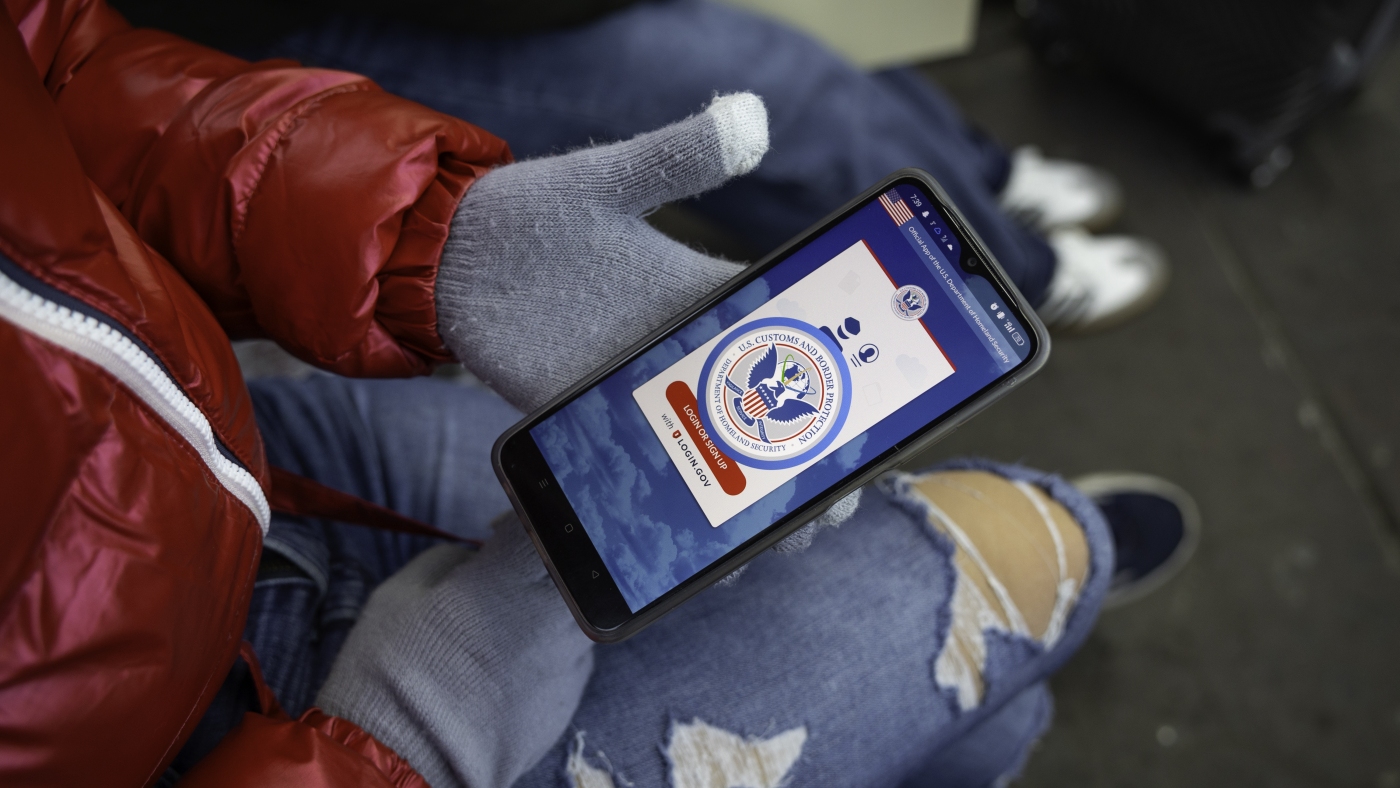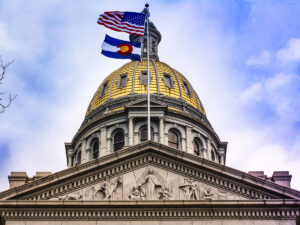
The CBP One app was a central part of the Biden administration’s strategy to relieve pressure at the U.S. border. It allowed migrants to schedule appointments at legal ports of entry instead of crossing into the U.S. illegally to seek asylum.
John Moore/Getty Images
hide caption
toggle caption
John Moore/Getty Images
On a typical day at her job in a California Walmart, Y. received an alarming email from the U.S. Department of Homeland Security, stating, “It is time for you to leave the United States,” and announcing the immediate termination of her parole. Y., who is Venezuelan and requested anonymity by only using the initial of her first name, was overwhelmed with anxiety after reading the message.
“I got nervous, desperate,” Y. shared in Spanish with NPR, expressing her unease despite entering the U.S. through a scheduled CBP One appointment.
In a significant policy shift, the Trump administration is instructing certain migrants who entered the U.S. via the CBP One mobile app to depart promptly. This action is part of a larger initiative to rescind temporary legal statuses that were granted under humanitarian parole during the Biden administration.
Introduced in January 2023, the CBP One app enabled migrants to secure appointments at legal border entry points, providing an alternative to illegal crossings for asylum seekers. This tool was integral to the Biden administration’s approach to managing border pressures by utilizing humanitarian parole for temporary legal entry. However, the Trump administration has dismantled this policy and is now urging those who benefited to exit the U.S. immediately.
“Canceling these paroles is a promise kept to the American people to secure our borders and protect national security,” a DHS Press Team statement confirmed via email.
The DHS has issued formal termination notices to some migrants who gained entry through the CBP One app, though the exact number of recipients remains unspecified. Y., along with her two children, arrived in the U.S. in July 2024 after an eight-month wait in Mexico for a CBP One appointment.
Over 936,000 migrants used this app for border appointments. Now, DHS encourages them to report their departures using the rebranded CBP Home app, reflecting the Trump administration’s new approach. “With the launching of the CBP Home app, we are restoring integrity to our immigration system,” Homeland Security Secretary Kristi Noem declared in a statement last month.
In addition to targeting those who entered through CBP One, the Trump administration has terminated parole for over 500,000 others from Cuba, Haiti, Nicaragua, and Venezuela who entered under a separate Biden-era initiative. However, protections under Uniting For Ukraine and Operation Allies Welcome remain intact for now.
The recent termination notices warn that affected migrants will lose work authorization and may face fines, criminal prosecution, and removal unless they have secured another legal status in the U.S.
The DHS has yet to clarify the impact on those with pending asylum or Temporary Protected Status applications. “People are really confused, especially if they have pending applications or pending court proceedings,” stated Erika Pinheiro, executive director of Al Otro Lado, a nonprofit assisting many migrants who used the CBP One app.
Pinheiro noted that most individuals should retain temporary protection from deportation while contesting their cases in immigration courts, where many seek asylum. “They are protected from deportation,” she emphasized, “but the letter seems to indicate otherwise.”
The termination notices may primarily affect migrants by revoking their work permits. Yet, Pinheiro highlights the psychological toll of receiving such letters, instilling fear regardless of actual deportation risk.
Y., the Venezuelan mother who received the DHS email, continues to grapple with uncertainty and anxiety, describing her current state as feeling “in a limbo.” Her journey to the U.S. involved overland travel through Mexico, during which she endured a traumatic assault by Mexican police. Now settled in California and employed at Walmart, Y. is preparing for her first immigration court hearing with her children, determined to “continue to do things the right way” despite her fears.
This article was originally written by www.npr.org





